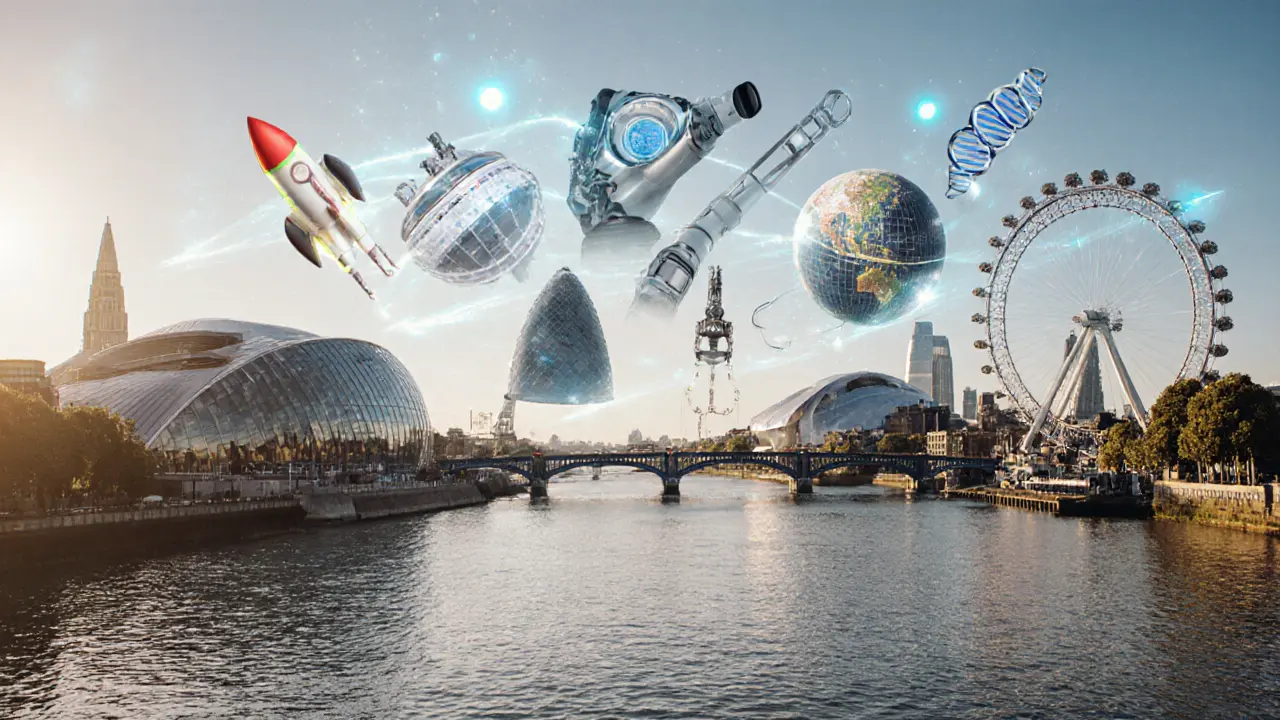London Science Attractions
When exploring London science attractions, places that blend education, discovery, and fun across the capital. Also known as science venues in London, they range from historic museums to cutting‑edge labs, offering visitors of all ages a chance to see science in action.
Science museums, large institutions that house permanent collections and rotating exhibitions are the cornerstone of any science‑tour. The Science Museum on Exhibition Road, for example, showcases everything from early steam engines to modern robotics. Nearby, the Royal Observatory, the historic site of Greenwich’s prime meridian lets you stand on the line that divides east from west, while the planetarium offers night‑time sky shows that feel like a private tour of the cosmos. Together, these attractions require curiosity and a willingness to engage with interactive displays, making learning feel like play.
Why They Matter and How They Connect
London science attractions encompass a broad network of related entities: interactive exhibits, hands‑on stations where you can experiment with physics or biology that turn complex ideas into tactile experiences, and science festivals, city‑wide events that bring experts, performers, and families together. A festival like the London Science Festival adds a seasonal spark, drawing crowds to museums, pop‑up labs, and public talks. This synergy boosts public engagement and inspires future scientists, while also feeding into the city’s vibrant cultural nightlife—think after‑hours talks at the Southbank Centre or cocktail‑styled science demos in trendy bars.
These venues also require practical planning. Knowing opening hours, ticketing options, and accessibility features helps you make the most of each visit. For families, the Natural History Museum’s dinosaur hall offers a thrilling backdrop for learning about paleontology, while teenagers might gravitate toward the interactive VR zones at the Science Museum. Professionals seeking deeper dives can attend evening lectures at the Royal Institution, where leading researchers discuss breakthroughs in real time.
Beyond the museums, the city’s educational tours, guided experiences that focus on specific scientific themes provide curated narratives that tie together history, innovation, and future possibilities. A tour of the Wellcome Collection, for instance, blends medical history with contemporary art, spotlighting how science and creativity intersect. These tours bridge the gap between static displays and dynamic learning, offering a personal touch that static exhibits alone can’t deliver.
When you combine science attractions with London’s broader cultural scene, you get a richer picture of the city’s pulse. Night markets near the museum districts, pop‑up science cafés, and even themed escape rooms draw on the same curiosity that fuels museum visits. This crossover shows that science isn’t confined to quiet halls; it lives in the city’s rhythm, influencing fashion shows, tech meet‑ups, and even the after‑dark entertainment options featured in many of the posts on this site.
By understanding how these entities interact—museums hosting festivals, observatories offering night sky tours, and tours weaving narrative threads—you can craft a day (or weekend) that feels both educational and exhilarating. Whether you’re a local looking for fresh weekend ideas, a visitor seeking a deep dive into British scientific heritage, or a student hunting inspiration, the range of London science attractions provides a roadmap to discovery.
Below you’ll find a curated selection of articles that dive deeper into specific attractions, practical tips for planning your visits, and insider looks at how London’s science scene blends with its nightlife, dining, and cultural experiences. Let’s explore what the city has to offer and turn curious clicks into unforgettable memories.
Top Science & Tech Attractions in London for Enthusiasts
Explore London's top science and technology attractions, from museums and observatories to maker spaces and workshops, with practical tips for locals and visitors.

